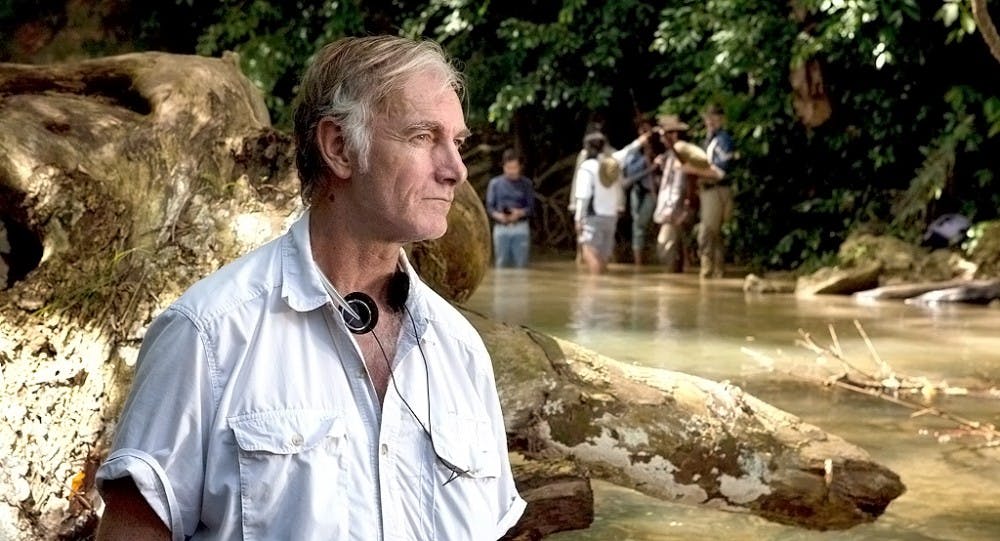The Nicholas School of the Environment will present its fourth annual LEAF Award for Lifetime Environmental Achievement in the Fine Arts to author and independent filmmaker John Sayles.
The award is given to an artist whose work focuses on promoting sustainability and environmentalism. The committee in charge of the LEAF Award recognized Sayles for his portrayal of the land and emphasis on people’s connection to the earth. Sayles will accept the award at a ceremony April 21 in Reynolds Theater. Previous recipients have included novelist Barbara Kingsolver, musician Jackson Browne and actor Robert Redford.
“In my novels and my movies, there’s a really strong sense of place, and how the nature of the place, as well as the culture of the place, affect how the people are and how they think about the world and how they interact,” Sayles said.
The committee also highlighted Sayles’ commitment to making movies outside the major Hollywood studio system, which paved the way for the modern independent filmmaking movement. Sayles began his career as a novelist in 1975, and he writes as well as directs his movies. He was nominated for several Academy Awards, such as Best Original Screenplay in 1993 for “Passion Fish” and 1997 for “Lone Star.”
Nicholas School Dean Bill Chameides said the LEAF Award does not necessarily go to artists whose work is explicitly environmental, but goes to those who explore environmental themes on a profound level.
“[Sayles examines] the theme of our connection to land, to the earth and to the difficulties we have in trying to balance the various needs and desires for the resources of that land,” Chameides said.
Tom Rankin, director of the Center for Documentary Studies at Duke and associate professor of the practice of art and documentary studies, said he is impressed by the sense of nuance, language and narrative that permeates Sayles’ 17 feature films, a contrast to the style of most movies coming from major Hollywood studios.
“His movies are made around good storytelling, and visually they are also really, really beautiful,” Rankin said. “There’s an artfulness and a sense of place that’s unique and really powerful.”
The sense of place is more prominent in some of his movies than others, Sayles added. For instance, he chose to set his 1999 movie “Limbo” in Alaska because he wanted to feature a place where people sought the challenge of living in difficult conditions. In addition, “Passion Fish” touches on environmental themes and is set in the Cajun area of Louisiana.
“I always think of where the film is going to take place as a character in the movie,” Sayles said. “A lot of Hollywood movies are set in a fantasy world.... I really try to use things that actually happen there and some of the character of the place in [my movies.]”
Rankin said Sayles is distinct among major film directors in that he has remained outside the usual Hollywood system out of personal choice. Even after achieving success, Sayles continues to write and finance his own movies and distribute them through the studio system once they are completed, Rankin said.
“It allows him a kind of freedom in the storytelling and art that we see in his work—it’s riskier; it’s probably harder,” Rankin said. “It’s essentially saying, ‘I’m not going to wait for someone to bless my work; I’ll go with less money and do what I’m going to do and show [the studios] after it’s finished how good it is.’ People have a lot of respect for him for that reason.”
The annual Full Frame Documentary Film Festival, held in downtown Durham each April, features an entire category devoted to environmental documentary filmmaking. Every entry in that category follows in the work of Sayles, Chameides noted.
“The way he has followed his gut instincts and told the stories that are worth telling—that he wants to tell—and has been somewhat of a maverick in doing it, has served as a model for a lot of documentary filmmakers who are always independent in their endeavors,” Rankin said.
Get The Chronicle straight to your inbox
Signup for our weekly newsletter. Cancel at any time.

